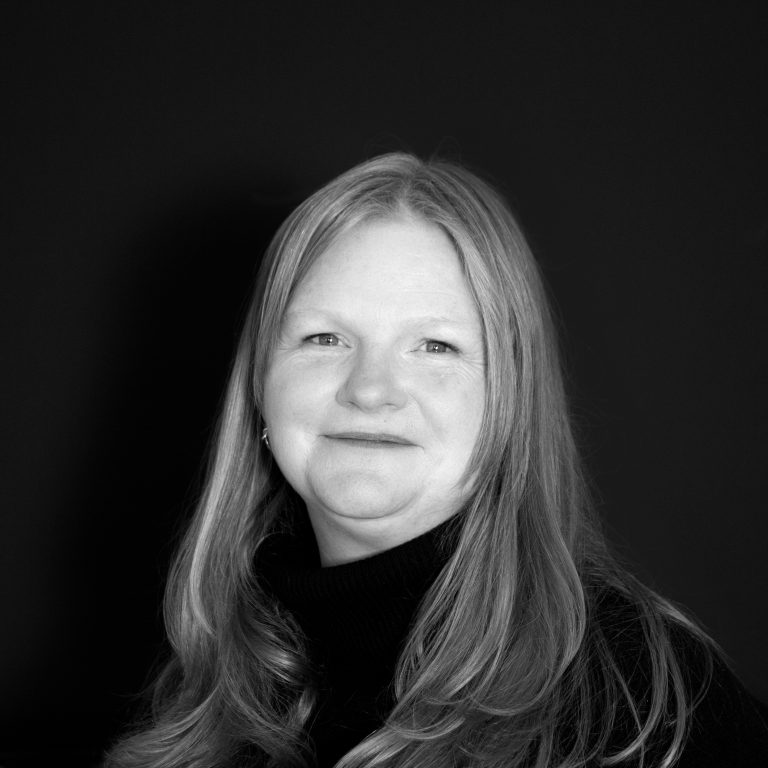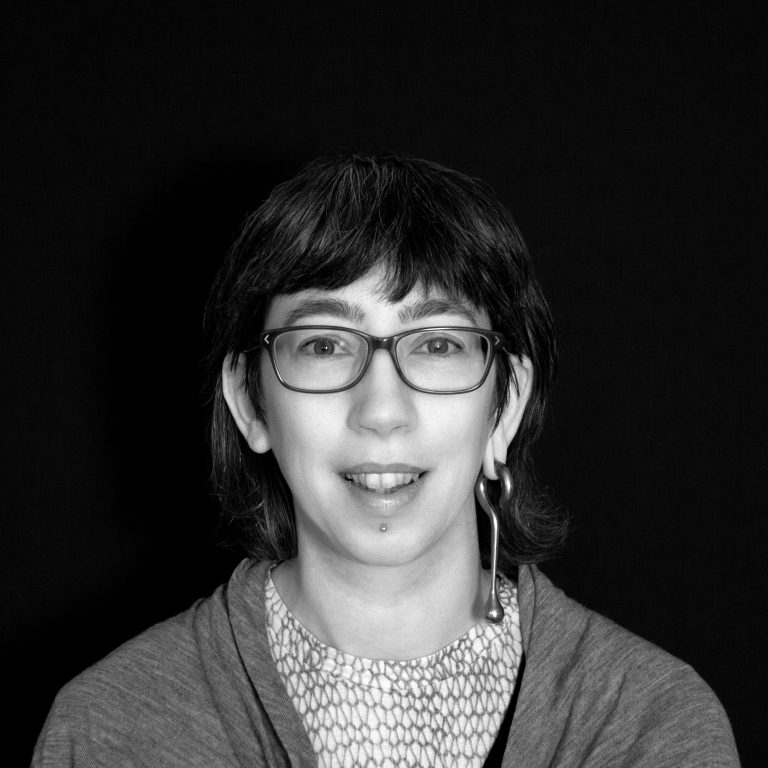BA (Hons) Fashion Branding & Creative Communication
The ability to style and promote fashion brands, design campaigns and publications and market fashion events creatively and effectively, form the basis of the Fashion Branding and Creative Communication course at CSVPA.
With extensive connections to industry, easy access to London and more tutor time than most fashion courses, we will help you develop to your maximum creative potential and enable you to build brand through creative communication. The course will engage students with a wide variety of subject areas from styling, photography, art direction and trend prediction to branding, PR and fashion marketing. This leads to in-depth exploration of one of these subjects in the final year.
This contemporary, creative yet career-focused programme is designed to develop the skills, innovation and vision necessary for the fast-moving world of fashion branding and communications.
WHAT TO EXPECT FROM THIS COURSE
YEAR ONE
In your first year you will be introduced to the subject and explore your own visual communications, including layouts, art direction with styling, photography and content curation with digital and print media. You will also be introduced to fashion promotion, PR and fashion branding all within a global and contemporary context.
YEAR TWO
In your second year you will advance your skills learnt in year one examine the possible futures of the industry and the positioning of your personal practice within the fashion world. You explore the current shifts towards sustainability, technology and inclusivity and explore creatively modes to communicate positive change. You will have your first briefs from industry professionals and will be tasked to create projects for their brand. This could include pop-up events, lookbook creation, online promotional activity and printed outputs. You will learn professional strategies such as the creation of self-promotional materials and your portfolio.
YEAR THREE
In your final year you will focus on your own areas of interest and orientate yourself towards the world of work. Final year specialisms will vary from digital and experiential campaign creation, event management, brand strategies and new product launches to production of trend and colour books, branded look-books, magazines and more.
THE AWARD
Upon successful completion students will be awarded with a BA(Hons) Fashion accredited by Falmouth University
“To have won the fashion concept award acknowledges the depth of research and execution of my final collection. It also gave me a boost of confidence in my abilities as a designer to have been
recognised by industry experts. I think winning the award was not only a testament to my hard work but also to my tutor, technical and pattern cutting tutor.”
Taneshe –
BA (Hons) Fashion studen
VIDEO
HIGHLIGHTS
OVERVIEW
Course Location
Cambridge
Course Length
3 years (6 semesters)
Course Start
September
Tutor Support
Specialist staff support available 5 days a week
Studio Access
Students have access to our studios 7 days a week, from 8:00 am to 8:30 pm, Monday to Friday and 9:00 am to 5:00 pm at weekends.
Awarding Body
Falmouth University Awarding Body
English Language
Up to 5 hours per week if required
How your Work is Assessed
Practical projects and written assignments
Guest Lecturers
Our course is enriched by programmed of lectures and workshops from a range of creative professionals.
Your Space
Each of our students have their own workspace, access to an in-studio library and our photography studio and materials needed for print making. We also provide you with free printing and the latest adobe software.
How We Teach
Throughout this course students will be taught through specialist workshops, guest lecturers, regular one-to-ones and group tutorials.
Progression
Fashion PR, Stylist, Fashion Marketing, Fashion Event Manager, Creative Director, Fashion Journalist, Fashion Editor.
UCAS Institution Code
C06
UCAS Course Code
N560
ENTRY
Age
18 years +
Educational Level
A pass at UAL Level 3 Foundation Diploma or Extended Diploma or equivalent or successful completion of High School (Year 11 or Year 12 depending on native country) is needed or 2 x A levels equivalent to 64 UCAS points and 1 GCSE or equivalent at grade 4 or C, preferably in a relevant creative subject. Students who do not meet these entry requirements will still be considered on their own individual potential to succeed.
English Level for International Students
IELTS 5.5+ (with no element below 5.5)
Portfolio
Not required. Students must display a strong interest in the Fashion industry evidenced through a personal statement.
STRUCTURE
YEAR 1
This year consists of 3 short modules in the first semester where you are introduced to the key themes and skills of the course. It’s a practical, creative and fun introduction and will cover Visual Communications (layouts and image), Art Direction (styling and photography) and will touch on Fashion Promotion (PR and marketing) through trends and concepts module.
You will be taught in a 6 week block together with Fashion students. The subsequent modules will build on skills learnt in the first module and introduct other skills.
Creative Communication – 20 credits
This module begins the process of investigation and analysis into areas of style, trends and concepts within fashion. It will introduce and explore the basic principles of research including trend anticipation, identification and analysis, concept development, idea generation and presentation.
You will learn how to research a subject and identify relevant contemporary information that supports and contextualises the process. You will also learn how to use research to inform creative idea visualisation and communication. This will be supported by lectures, seminars and workshops, which will explore approaches and practices to research, concept development, illustration and presentation through the use of creative media.
There will also be the opportunity to investigate use of colour, fabric, 2D-3D forms and graphical elements applied in fashion presentation and a range of industry-standard software. This module will also support and build your confidence in oral and visual presentation.
Outputs – 80% portfolio of presentation boards, 20% trend presentation (shared delivery).
Image Architecture - 20 credits
This module will introduce you to the discipline of styling and photography; the creation of images and the architecture of style that is integral to fashion promotion. It provides a firm grounding in all aspects of a stylist’s practice.
You will develop your fashion and market awareness, organisational skills and creative vision as well as being introduced to the technicalities of image creation and explore different forms of styling and visual story-telling. Using themes, you will develop a practical understanding of art direction from initial research, to storyboard, shoot production management and final imagery. You will be challenged to create an imagery for both commercial and creative campaigns and begin to develop an individual styling perspective.
Outputs – Creatively styled photoshoots and a look book.
Content Curation - 20 credits
This module will enable you to understand the creative and technical processes relating to image curation, image management and layout. Using digital processes, it will explore and encourage experimentation in relation to layout, graphics and imagery combined with creative use of text.
Research processes to promote cultural and fashion awareness will be discussed and demonstrated. The field of style publications, in print and digital, will be explored and analysed in lectures and workshops. You will be introduced to industry standards in image creation, presentation and layout and you will also explore the technical practicalities of image sourcing, quality management and manipulation.
You will also investigate and attempt different styles of writing for online and offline outputs.
Outputs – Publication research, digital or print media and layout concepts.
The second semester covers Fashion Promotion (PR, marketing and branding) in more depth in a larger module called Fashion ID. You will collate the creative skills learnt in semester one and start using them to create branding, PR and marketing concepts as well as study contextual studies alongside the Fashion BA students.
Fashion ID - 40 credits
This module will introduce and explore the essential skills of PR, marketing and branding within fashion.
You will explore a variety of techniques used in public relations. You will examine how fashion media and PR are influenced by the ever-changing digital landscape and how consumer-generated content has changed the fashion experience and approaches to customer engagement. During the module you will explore the art of story-telling, learning how to write reports and copy for variety of online and offline media and audiences.
You will explore methods of branding to identify signatures and narratives whilst developing an understanding of the interlinking relationships within brand culture such as globalisation, ethics and corporate social responsibility.
You will also learn to create marketing plans that explore retail environments, consumer profiling and positioning and promotional strategy. This will then inform the development of integrated communication strategies for specific markets and budgets. The concept of strategic thinking will be introduced to encourage you to see, predict and plan ahead. You will build on your research, imaging and communication skills to create a targeted campaign.
Outputs - portfolio of brand signature research, PR copy and an integrated communication strategy for a brand or product launch.
Fashion in Context – 20 credits
This module provides an introduction to a critical and contextual approach to the study of fashion. It will develop your skills in research, presentation, analysis and communication to enable you to both conceive and effectively articulate your ideas.
A lecture and seminar series will introduce key concepts in fashion history and theory. This will establish a foundation for both the evaluation and discussion of fashion. You will be exposed to a wide range of social, political, cultural, theoretical and aesthetic contexts in which fashion is produced, disseminated and consumed. This will draw parallels and thematic links between the historical and the contemporary. In order to develop your ability to reflect critically and to begin to locate your own work in a broad contextual framework.
A series of workshops and tutorials will also introduce key study skills and academic protocols. These will extend competence in formal essay writing and develop skills in critical evaluation and textual and visual analysis.
YEAR 2
In this year, you will progress to more challenging projects that introduce collaboration with industry, learning how to design for a specific customer by working on ‘live’ industry briefs. You will also return to creative exploration and innovation, developing ideas, experimenting with creative pattern cutting, methods of construction and surface decoration in preparation for your final year specialisms.
Fashion As Narrative - 40 credits
In this module you will learn to communicate fashion narratives and develop visual story-telling techniques to support promotional activity.
You will explore the evolution and role of the fashion film and its contemporary use within fashion promotion. You will investigate current forms of fashion related moving imagery used to promote products and brands and engage with consumers and audiences.
Also, you will develop the ability to create concepts and storyboard ideas and develop a basic understanding of moving image creation, lighting, location scouting and editing techniques.
Towards the end of the module you will work in groups and use a variety of techniques to produce a moving image presentation such as a short fashion film, advert, animation or social media story for a specified client. At the end of the module the group will creatively present a premier of their output to an audience.
Fashion is a complex cultural phenomenon which draws together many diverse creative fields. To further develop your understanding of visual culture a series of lectures and seminars will explore how fashion relates to film and other art and design forms, cultural and social influences and ways of connecting this to industry practise.
Outputs – short moving images, creative event presentation, essay. (only essay shared delivery)
Fashion Futures - 20 credits
Trend forecasting provides key insights into inspirational styling, colour and material use across all sectors of fashion and form the core of promotional planning. In this module you will develop your understanding of the methodologies and wide-ranging knowledge used by practitioners to identify, anticipate and justify trends.
Using a wide body of evidence (including socio-cultural, technological, economic, sustainable and visual factors), you will be expected to develop methods of research and analysis to articulate future trends and start thinking more strategically.
You will also develop the ability to identify fashion influencers, understanding how trends are created and communicated and their impact in the context of creative innovation. By the end of this module you are also able to use a variety of techniques to deliver colour prediction and trend forecasting presentations to a potential client.
Outputs – trend book and client presentation.
Fashion & Brand - 40 credits
This module focuses on branding, creative production and visual identity in a fashion context. It supports you as you develop a conceptual understanding of brand management and creative visualisation of brand and identity using visual communication and experiential events.
You will initially evaluate a fashion event of your own choosing, reflecting upon its success (for example; attendees, engagement with target audience, content creation, social media mentions) and assessing its impact on subsequent media and promotional activities of the brand.
Using primary and secondary research to establish the target audience, you will create a branding and promotional strategy for a chosen brand or entrepreneur developing a critical path that covers a timeline from event to final outcome, integrating key promotional elements such as experiential activities, print, digital and social media to support potential brand objectives.
You will develop unique strategic plans for your specified client, with reference to a budget, to help them tell a cohesive and compelling brand story. You will think strategically to create marketing plans that consider staged time frames, identifying what you are trying to accomplish over specified periods of time and how you will do this.
You will also explore the online landscape of personalities, publications and social media. Typically, you will compare the use of paid vs authentic brand/influencer relationships to engage directly with consumers and the role of digital influencers within fashion promotion. You will also investigate case studies of digital promotional activities exploring both successful and failed campaigns in order to identify best practise.
In Groups, you will also produce promotional material in support of an event activity which you will plan, document, and deliver. Examples of activities could be (but are not limited to) a catwalk show, fashion presentation, product launch, exhibition or pop-up retail. You will measure the success of their event and its impact on other media.
In addition, you will consider how brand and promotion applies to your own work through developing online portfolios and self-promotional materials. This facilitates preparation for a range of opportunities such as for possible work placement applications that may commence at the end of the semester. Work placement is not an assessed part of the course but is fully supported by staff as being hugely beneficial to your professional development.
Outputs – event evaluation, branding strategy, illustrated event report and self-promotional materials.
Theories and Methodologies – 20 credits
This module further investigates the historical, social, cultural, ethical and global contexts in which contemporary practice occurs. It introduces theoretical perspectives in order to develop your ability to discuss your own and others’ practice within a contextual, critical and academic framework.
Drawing on art and design history and theory, cultural, social and media studies, the lectures, seminars and workshops will introduce theoretical approaches to practice. In addition, you will explore methodologies appropriate to academic research.
The overall theme is concerned with how we can understand different forms of culture via the use of methodologies and critical frameworks. In this way the module will consider research methods and approaches that prepare the student for the dissertation in Level 6.
Outputs – essay (shared delivery).
YEAR 3
In your final year, you will start to focus on your specialism and start orientating yourself towards the world of work.
Industry Interaction – 40 credits
This module provides you with industry encounters and/or viewpoints of visiting practitioners through which to further define individual areas of interest within the field of fashion promotion. You will undertake a series of projects that can be set by tutors or self-devised and negotiated. The focus of the projects will reflect individual research interests and allow for continued exploration of fashion promotional practice. The strategic direction and context of the projects can arise from direct experience from industry placement, equivalent negotiated project, or entrepreneurial collaboration with a specific company.
Towards the end of the module you should have a clear understanding of your individual interests and aspirations allowing you to define a context and route to your Final Major Project.
You will also be expected to demonstrate independent engagement with networking opportunities and entrepreneurial aspects relevant to your next steps following graduation.
Dissertation – 20 credits
In this module you complete a dissertation. This requires you to work independently; to consolidate, exercise and deploy knowledge and skills acquired in your previous cultural studies modules. You will focus in depth on a specific and discrete topic in a cultural field; to develop and sustain a thesis, within a guiding theoretical framework. You will discuss ideas with your supervisor to determine the specific subject and development of the research topic. Through individual and / or group tutorials you will determine the nature, form, breadth and depth of your independent study. You will then draft and produce a substantial body of written work.
Final Major Project - 40 credits
This module is the culmination of the course and offers the opportunity to present your individual signature as a creative and visionary fashion practitioner. You (with tutorial support) will develop an outline project proposal which will be presented to peer group and supervisor(s). The proposal will indicate the range of outputs, resourcing and specialist support needed, and include a programme of concept research and realisation. You will explore a promotional specialism that demonstrates the diversity and breadth of your creative ability, management and communication skills and professionalism. Projects may, where appropriate, be written in collaboration with an industrial contact and/or university peer. The project aims and objectives are determined by participating parties and approved by the project supervisor.
Through group forum and individual tutorials you will determine the nature, form and breadth of your project and submit a synopsis for tutors and peer review. Through formative feedback and reflection you will develop a creative project from concept to audience.
Projects will reflect your strengths and career aspirations. The weighting of assessed components can be strategically negotiated in terms of visual, promotional and written development, depending upon the nature of the body of work required.
Professional Portfolio - 20 credits
This module supports the completion of the fashion graduate portfolio, realising a range of outputs as a coherent narrative ready for presentation at a graduate show or equivalent. This is the culmination of the course and offers the opportunity to present your individual signature as a creative and visionary fashion practitioner.
You will present a series of projects that demonstrate the diversity and breadth of your creative ability, skills and professionalism.
Using appropriate technology and contemporary methods, you will produce a creative and comprehensive, professional portfolio, which will reflect your personal strengths and position future career and academic aspirations.
You will develop your personal brand, demonstrating an understanding of self-promotion, creating innovative outputs and illustrating a progressive method to present your ethos within the global industry.
SUBJECTS
- Styling 101 (from repurposing a wardrobe to celebrity dressing,catwalks and global campaigns)
- Graphic Typography and Layout
- Journalism and Copywriting
- Fashion Illustration and Collage
- Fashion and Cultural Context
- Branding and Identity
- Market research and demographics
- Retail systems
- Fashion Image and Art direction
- The Photoshoot
- Today’s Fashion Ecosystem
- Social Media strategy
- Fashion Tech innovation
- Regeneration and Circularity
- Communicating sustainable practice and positive social impact
- Brand Identity
- Brand strategy
- Marketing Purpose
- PR practices and self-promotion
- Influencer strategies and collaborations
- Working for a client
FACULTY
RELATED COURSES
TALK TO US
Do you want to find out more about CSVPA? Talk to our student advisors now.















